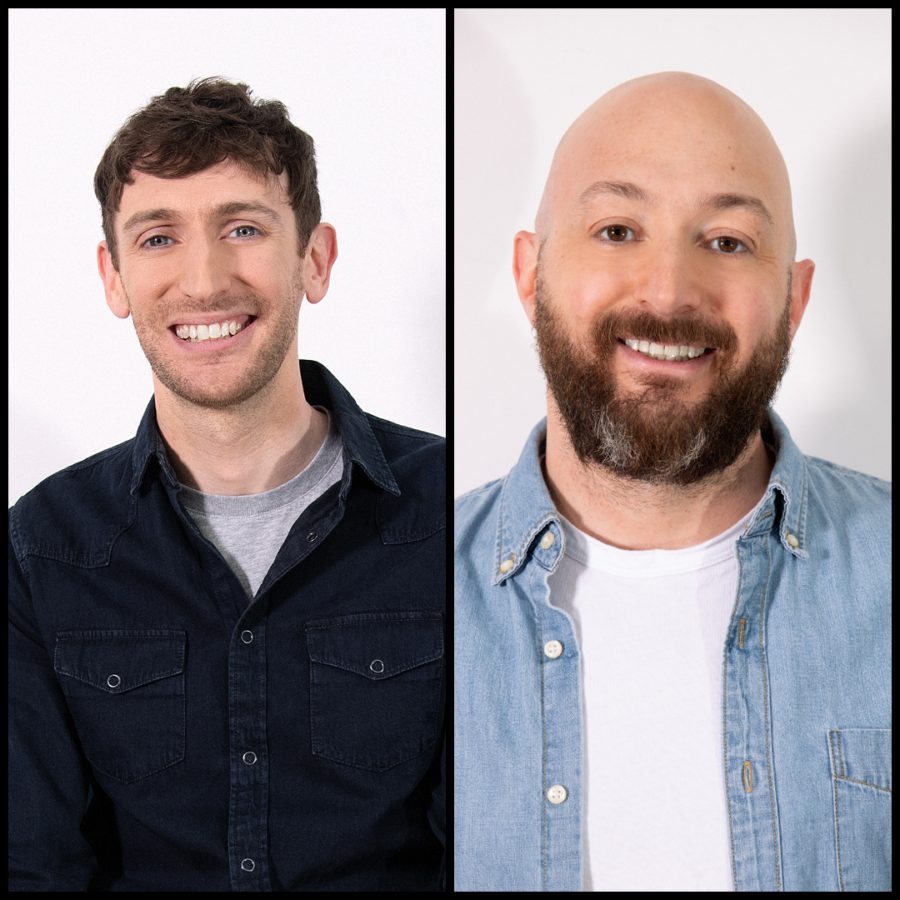Season Review: Big Mouth Season Four
Big Mouth returns on the streamer machines for a rousing fourth season. The often cringe-worthy adult series has surpassed many other Netflix Originals with a successful four-year run. Simultaneously, it has become one of the most popular animated sitcoms and the current gold standard of the genre in streaming media.
Since Big Mouth last updated, the show has been enjoying its stardom. Netflix made an unprecedented commitment to run the series through to a sixth season. Going further to sign the first Netflix Original spin-off series, Human Resources; which will feature the shows infamous hormone monsters in a work-place sitcom much akin to The Office. And the third season brought the series its first Prime-time Emmy Award for Maya Rudolph’s outstanding voice-over performance as Connie.
Going into the fourth season there are high stakes for Big Mouth to continue its progression in the story, quality and humour. A task made more difficult based on the show’s core of being an anthology following the development of pubescent teenagers. The third season left the show in dark waters having the drama heightened and the characters dispersed; in some cases, relationships completely severed. Which leaves it in the hands of this latest season to either pick up the pieces or let things fall apart further.
Thankfully, if you have forgotten the majority of the ongoing plot the series delivers a unique recap to kick the new season off. Replacing a traditional clip segment of critical moments of the previous season, Big Mouth season four offers a musical number, complete with the characters reminding viewers of their current situations.
Just to get us on the same page for the remainder of this review, this is how things ended off in season three: Nick and Missy kissed much to the chagrin of Andrew. When Nick essentially dumps her, it causes a rift between all three friends. Dealing with the aftermath of their divorce, Jessi’s mom opts to move her and her daughter to the city. Jay accepted that he was bisexual. Matthew found a new boyfriend. And the season closed with most of the characters in a depressive state and off to sleep-away camp.
And that is where season four begins with Nick, Jessi, and a reluctant Andrew at camp with a new cast of characters. Seth Rogen plays a French-Canadian teenager with a penchant for showing his ball sack and by happenstance causes a more significant rift between Nick and Andrew. Josie Totah plays the series first transgender character which allows the show to find unexplored topics. The always hilarious John Oliver plays an overwhelmed camp counselor. Oscar-winner Paul Giamatti is featured as the angriest piece of literal shit. And Maria Bramford enters as Tito the Anxiety Mosquito who becomes one of the most integral parts of the full season’s plot.
The new camp setting was an exciting change. Thankfully, it only lasts for the first few episodes before the series gets back on track. Though it did give the series a chance to explore what goes on during these awkward summers where kids spend weeks cramped in cabins and are forced to shower together. The embarrassment and struggles are embellished when Nick stops showering, Andrew gets the poop madness, and Jessi dries out the lake with her feminine hygiene products.
The summer antics climax when Andrew and Nick resolve their differences. Effectively resolving one of the major hurdles this season needed to face with their friendship in shambles. And like that, the two main protagonists are reunited and ready for eighth grade.
Which they comfortably slip into by prowling on their seventh-grade juniors. Regardless of their creepiness, the show does work better when the two characters can work off one another instead of creating further dramas.
The road is not so simple for Jessi, as they never are. Despite her finding a friend and peace at camp, she does not get to return with her friends instead moves to the big city with her mother. It does not go well. Especially with the return of Depression Kitty and the new Anxiety Mosquito playing on her emotions. But as the season progresses things start to fall into place for Jessi. And for the first time in the series, Jessi’s plot does not focus on her life falling apart and her becoming more miserable.
Even Jay, who started the series as one of the main characters and slowly went off the rails in his own storylines gets back on track this season. He finds a new soulmate in Lola, which leads to hilarious antics as the two take the role of ‘that couple’, making out everywhere and pushing the gratuitous boundaries of the series.
Matthew takes a larger role in the fourth season with his own ongoing plot. After establishing himself as gay and finding a new partner in Zachary Quinto’s “Aiden”, there is one large obstacle left for the articulate character: coming out to his parents. With all the other things happening in the series, it is nice that the show took its time and delivered this plot home with a good message that may help others.
None of the main characters goes through more changes than Missy this season. The timid mixed-race girl explores her race by exploring black culture. And while it may cause a rift with her parents, it does help the girl to step into herself. Not only does Missy transform her look through the season, by the conclusion she has a new voice actress in Ayo Edebiri. Jenny Slate concludes her duties in episode seven after opting to step down from the role amid the Black Lives Matter Movement. With the transfer happening towards the conclusion of the season, it is not only seamless but fitting as well with the growth of the characters.
The shows hard work of rectifying broken relationships and depressive teenagers early in the season allowed things to shift to bigger themes in the latter half. The sixth episode, “Nick Starr” abruptly puts Nick 30-years in the future. Alone and insecure but successful, Nick Starr goes through a science-fiction-like storyline involving the end of the world and humanity. Not only did the episode drastically shift the tone of the season and laid the groundwork for the remainder of episodes, but it was also the pinnacle of the series thus far. As a stand-alone story, it was jam-packed with good twists, dark storylines, and commentary on the current state of the world. This may be the episode that finally brings home the Emmy for outstanding animated program.
Big Mouth was not ready to stop there. The following four episodes each did something unique and exciting.
“Four Stories About Hand Stuff” mixed-up the formulaic sitcom writing and opted to split the plots into four stand-alone stories. Each was twined together with the theme of hand jobs and fingering, and each delivered something different. Though this episode could have easily been packaged in the same manner as a traditional story, the formatting change made for something new and interesting.
With an enthralling move, the series foreshadowed an entire episode with a throwaway line from the future characters in “Nick Starr”. At one point, a middle-aged Andrew admitted to masturbating at a funeral, and the 8th episode delivers the complete story. Of course, it is way more disturbing and embarrassing than future Andrew let on and climaxed his ongoing arch of challenging his masturbation routine.
The seasons Halloween episode took things completely off the rails having the majority of the youth cast drugged at a sorority house. Nick, Andrew, Missy, and Jessi face their worst fears in dramatic hallucinations for some of the shows most ambitious animation. If nothing else, this was a fun episode to watch with Andrew’s montage of deaths and Missy’s battle of her multiple selves.
And the season finale does not disappoint with an epic climactic battle between Nick and his future self and Zach Galifianakis’ Gratitoad facing off against Tito the Anxiety Mosquito. The episode had the message of helping Nick find balance and brought most of the friends together to help their old friend. It was a heartfelt episode that brought the show full circle back to the status quo.
Season four of Big Mouth is like three mini-seasons wrapped up into one. It was by far the series most advantageous outing delivering a quality summer camp outing, a few classic Big Mouth episodes, and an over-the-top concluding saga. The magic is the fact that this show does this without changing tone or theme. The drama and uncomfortable nature of puberty are still at the centre of the series, yet it has found a way of doing that in an even flashier manner than previous years.
Much of the show’s success belongs to comedic star and show co-creator Nick Kroll. Though conceptually the series is the development of multiple great talents, most of them adorn credit upon Kroll. Mostly due to his endless celebrity phone contacts that have brought an undeniably star-studded cast of characters and appearances to the show.
Seriously, take a moment to explore Big Mouth’s IMDb page, and you will find a lengthy list of some of the greatest comedians of today. Season four brings even more celebrities to the cast including Seth Rogen, John Oliver, Zach Galifianakis, and Paul Giamatti; enough on its own to create a blockbuster comedy film. Added to the continued talents of Nick Kroll, John Mulaney, Jason Mantzoukas, Maya Rudolph, and so many others, it is no wonder that Big Mouth is the humour gold mine that it is.
Season four is a step-up for the series. The quality of these ten episodes is on a higher level than years before. Which is a praiseworthy step considering this was already one of the most popular adult animated series’ available. But it is easy to say that this was the best season of Big Mouth yet.
The only concern now would be that this is the series at its peak. Historically popular television shows reach their height in quality around the third or fourth season. Big Mouth has followed that same path of establishing itself, fine-tuning, and then pushing further. Traditionally, the next step would be to fall back on its laurels and mess with a good thing too much.
However, Big Mouth is not like other shows. At its core, it touches on important and relevant issues that we can all relate to or need to learn more about. While on the surface the show has never been afraid to push the boundaries. Not only in content, but in concepts as well. This one season starts with shattered friendships at a sleep-away camp and concludes with friends coming together to help one another defeat the fantastical creatures that haunt their minds. The fact that the series can do that in ten half-hour episodes speaks volumes.

























Just cancel this bird already. The chicken is beyond cooked. It's burnt to a crisp.